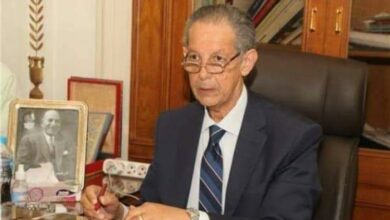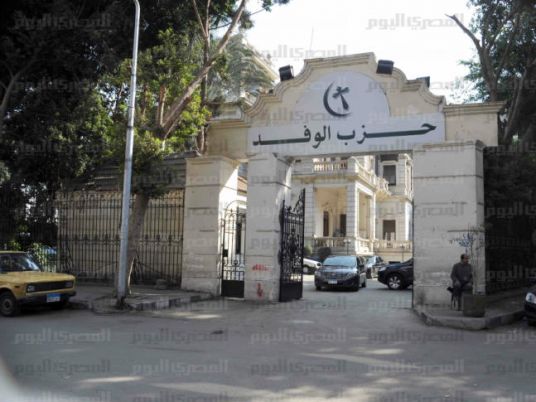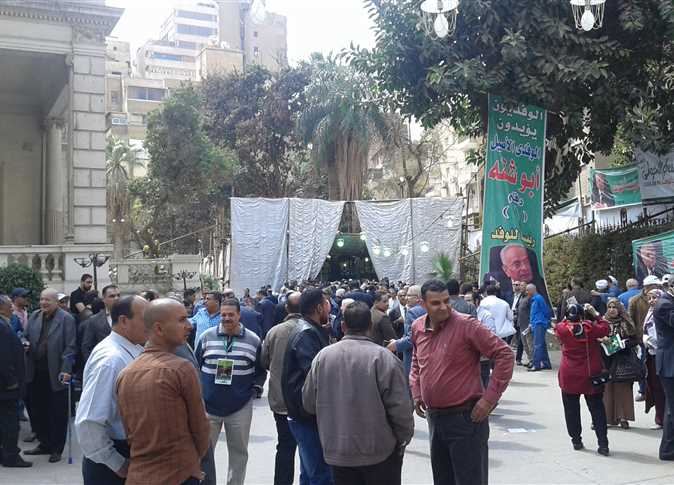Frustrated with the recent parliamentary electoral results, a number of former opposition parliamentarians announced last week the formation of a parallel People’s Assembly as the nation’s “true” representative body.
Analysts expect the shadow parliament to bring under its fold dozens of ousted MPs. Opposition members and rights group say the parliamentary poll was marred by pervasive fraud and voter intimidation.
Speaking to Al-Masry Al-Youm, Alaa Eddin Abdul Monem, one of the alternative parliament’s founders, objected to the use of the term “parallel,” preferring the moniker “the popular parliament.”
“There is nothing called a 'parallel' parliament because the word parallel implies the existence of another parliament," Abdul Monem said. "We do not recognize the existing parliament.”
The ruling National Democratic Party has a more than eighty-percent majority in the newly-initiated People's Assembly, Egypt's lower house of parliament. Rigging allegations and electoral violence that left at least 16 people dead prompted major opposition groups to boycott the second round of the electoral race and dismiss the new parliament as “void.”
“The existing parliament does not have a serious opposition that could level questioning debate on legislation," said Abdul Monem who lost his seat to an NDP candidate. "Whatever the government suggests will be accepted.”
In the last parliament, Abdul Monem was an established and ruthless critic of the NDP-led legislative agenda. He is recognized for unveiling suspicious deals of public land misappropriation perpetrated by former Housing Minister Mohamed Ibrahim Suleiman.
Aside from the participation of former MPs, the shadow parliament is expected to include a number of public figures widely known for their vehement criticism of the government. Founders are currently hashing out the details of their venture, including the number of seats and the nature of bylaws to regulate the shadow institution, according to Abdul Monem.
The initiative has been already endorsed by several groups including the Wafd, Nasserist and Tagammu parties as well as non-official opposition entities such the Muslim Brotherhood, Kefaya, the youth-based April 6 Movement and the Mohamed Elbaradei-initiated National Association for Change, added Abdul Monem.
This wide endorsement, however, did not discourage President Hosni Mubarak from voicing a sarcastic critique of the initiative.
“Let them have fun,” Mubarak mocked those involved in a recent speech. Critics cite such comments as further evidence of the disconnect between the presidency and the Egyptian population.
“It shows that he takes the people and their choices lightly,” said Saad Aboud, another founder of the parallel institution. “We will leave the matter to the future. Only the future can show whether this idea is worth implementing.”
For some experts, however, time will not benefit the initiative. Samer Suleiman, a political scientist with the American University in Cairo, said the parallel parliament is only for media consumption and is destined for failure.
“It is a joke more than anything else,” said Suleiman. “It is more of a media rather than a political phenomenon. Politically, the issue is dead before it even starts.”
“This [parallel] parliament does not represent different segments of the society and it has no democratic mechanism of selecting the members. The selection is only based on compromises between opposition figures,” he added.
“If it is truly a political project, it should be mobilizing people. Are they engaged in mobilizing people or do they just talk to the press? Can this initiative garner a wide appeal among Egyptians?"
For the founders, however, their initiative enjoys popular appeal. “If you check different [local] sites, you will find that there is a big number of people who expressed their support for the idea,” said Abdul Monem.
“Plus, as former MPs, we know what is going on in the street. We know how people feel and we are aware of the level of outrage and disenchantment among people,” he added.
A number of groups endorsing the initiative have recently popped up on the social networking site Facebook. Still, only a few hundred users have joined these platforms.
“I am not aware of a parallel parliament in any other country,” said Mostafa Kamel al-Sayyed, professor of Political Science at Cairo University. “The parallel parliament is an Egyptian innovation in order to cast doubt on the legitimacy of the existing parliament.”
Shadow cabinets are the only well-known example of parallel institutions, according to al-Sayyed. “The most famous example is in Great Britain where opposition parties form shadow cabinets as a sort of preparation for their members in case they win the majority in parliament.”
But unlike Egypt’s parallel parliament, the British paradigm is not intended to cast doubt over the legitimacy of the official government, explained al-Sayyed.
In recent weeks, the liberal Wafd Party formed a shadow government with nearly forty ministers in an attempt to question the efficiency of the existing NDP-led cabinet.
“We cannot tolerate more failures. There should be alterative ways to solve all the crises that surround us,"said Ali al-Salmi, the head of the Wafd shadow cabinet, in an interview published in Al-Masry Al-Youm Arabic edition earlier this week. "This [cabinet] is also meant to prove that Egypt has experts who could save it.”
The Wafd Party was dealt a blow in the last parliamentary elections. In the first round, only two out of more than 200 candidates secured seats while less than ten were set to stand in a run-off. Outraged by the result, the party boycotted the second round and froze the membership of candidates who defied the boycott decision and persisted with their bids.
“This is an imitation of the British example,” said al-Sayyed. “The only difference is that in Britain the shadow government consists of MPs and the system allows for the transfer of power through the ballot box. However, in Egypt, it is not made up of MPs and there is no possibility for transfer of power through the ballot box.”
But al-Sayyed voiced skepticism over the future of the shadow parliament.
“There could be practical obstacles,"he said. "I am not sure that authorities will allow this parallel parliament to meet."
Echoing this notion, Fathi Sorour, Egypt's re-elected speaker of the parliament, in a threatening gesture told Egyptian television on Monday that he "worries" about members of the parallel parliament, since Article 86 of the Constitution may be applied against them for disturbing social stability.




